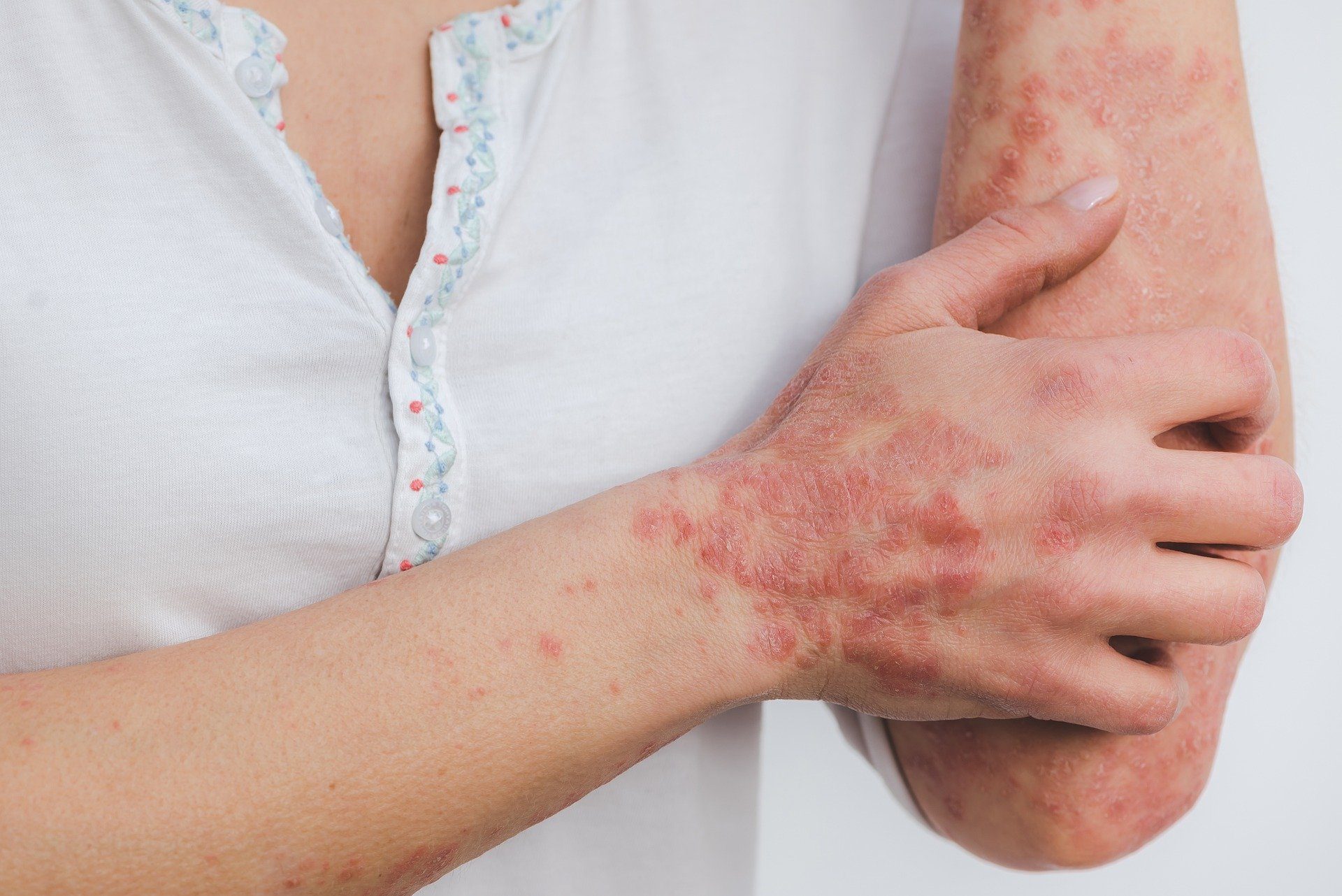Psoriasis is a skin condition that has no cure, but with the correct knowledge, can be treated.
Psoriasis is a noncommunicable skin condition characterised by the appearance of red, flaky, crusty patches of skin that are covered with silvery scales.
In some cases these patches can be itchy and painful. Although psoriasis can appear anywhere on the body, the patches are most usually found on the elbows, knees, lower back and/or scalp.
Research suggests that psoriasis-causing changes in the skin originate from the immune system, whereby certain immune cells known as ‘T cells’ are triggered and become overactive.
These cells begin reacting as they would if they were fighting an infection or healing a wound. This leads to the production of inflammatory chemicals in the body that, in turn, accelerate the growth of skin cells which causes these psoriatic patches or plaques to form.
This is why psoriasis is often described as an auto-immune disease. The exact trigger that offsets the immune system to react in this way remains unknown. While family history can be a reason for some, it is not the case for all.
Psoriasis flare-ups can be triggered by a number of external factors such as stress, hormonal changes, skin injuries, infections or certain medications.
According to the World Health Organization (WHO), psoriasis affects people of all ages worldwide. At least 100 million people are affected globally, with prevalence ranging from 0.09 and 11.43% depending on the country.
Read also: World Breastfeeding Week: the benefits for mum
Psoriasis can have a number of triggers and is often associated with significant comorbidities such as cardiovascular disease, arthritis, inflammatory bowel disease, metabolic syndrome, and depression.
In order to diagnose psoriasis, the examining physician may ask questions about your health, your scalp, skin and nails. The doctor may also take a sample of skin (biopsy) to examine under the microscope to help determine the exact type of psoriasis and rule out other disorders.
Is there a cure for psoriasis?
Although there is no cure for psoriasis, there are treatments that can help to ease the symptoms. These treatments aim to stop the skin cells from growing quickly and remove scales. Different options for treatment include creams, ointments, light therapy (phototherapy), and oral or injected medications.
At times, you will have to try different drugs, or a combination of the different treatments to find out exactly what works for you and your case. What you are prescribed depends on the severity of the psoriasis, and how responsive it has been to treatments in the past.
What is Psoriasis Awareness Month?
Psoriasis Awareness Month (PAM) aims to unite people all over the world who are living with the condition during the month of August to support each other, raise public awareness, and encourage the goal of finding a cure.
PAM provides the opportunity for individuals living with psoriasis to share their personal stories about their journey and hear about the experiences of others living with the condition.
Awareness is especially important as misconceptions about psoriasis, like other diseases, can lead to social stigma. For example, some people believe that psoriasis is contagious, and can be passed on through contact with the affected individual.
This can instil fear and encourage the avoidance of people who have the condition. Therefore, sharing the facts and debunking the myths surrounding the condition helps to create a more inclusive environment for those living with the chronic condition.
Read also: The truth and mistruths about ADHD
PAM also provides the opportunity to support scientific research efforts for psoriasis. Additional research can help reveal more about the skin disorder and help us move forward in our journey to finding a cure.
If you would like to get involved, you can play your part and help spread the word on psoriasis by sharing a personal story or verified facts and resources on your social media platforms using the following hashtags: #PsoriasisAwareness, #PsoriasisAwarenessMonth, #PsoriasisActionMonth.
Maha El Akoum, MPH, is a public health professional currently working as Head of Content at World Innovation Summit for Health [WISH].
Follow Doha News on Twitter, Instagram, Facebook and Youtube







